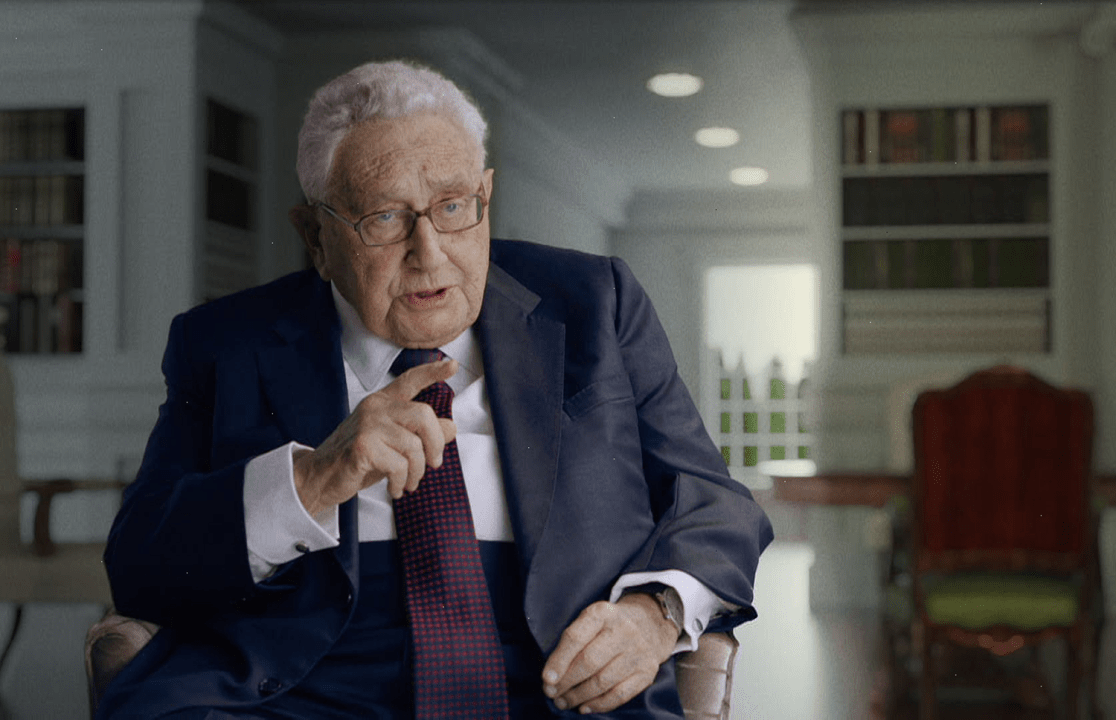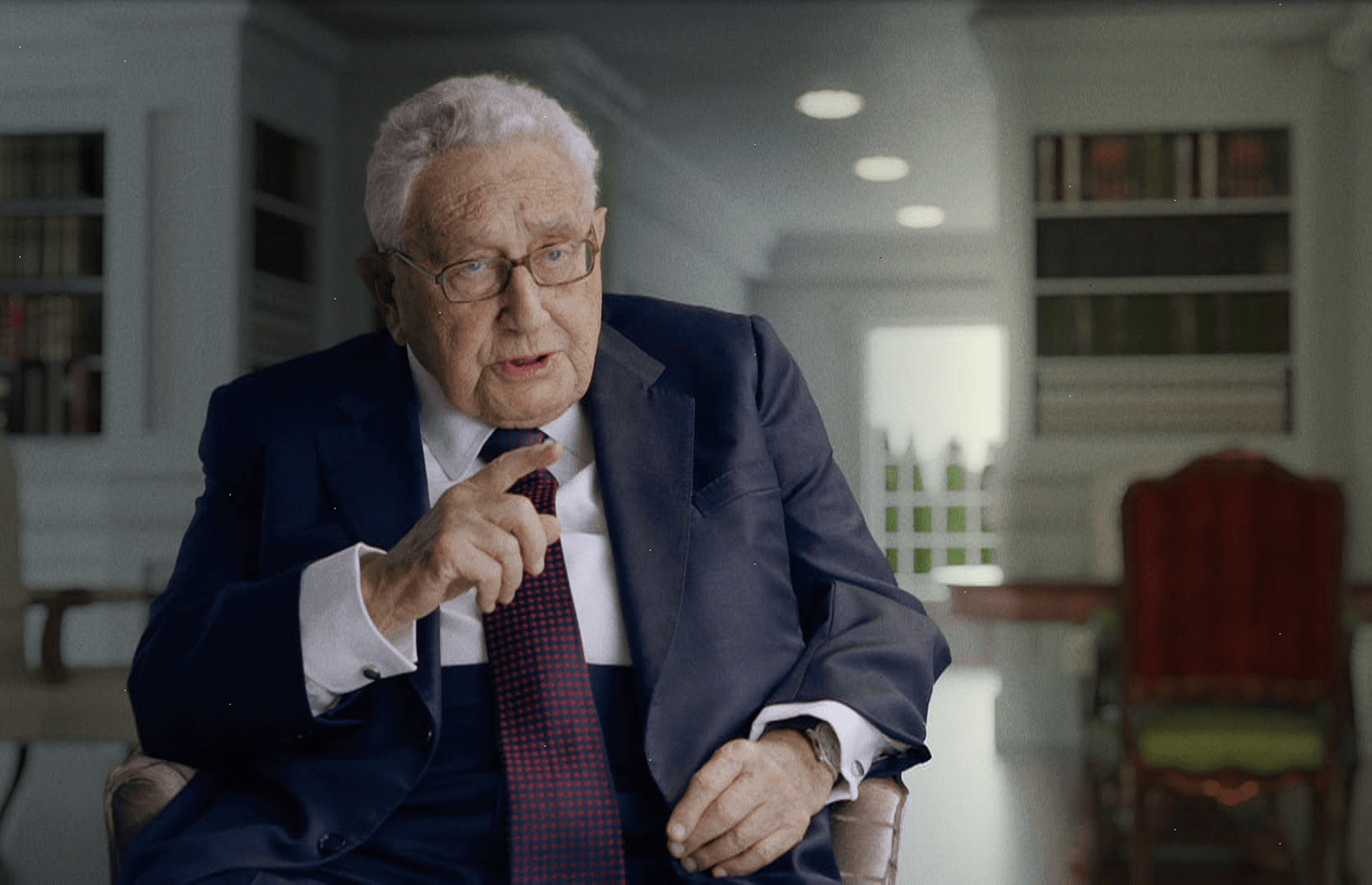Narrated by Meryl Streep, Corridors of Power: Should America Police the World? announced the scale of its ambition straight away. Before the opening titles, we’d already heard from Hillary Clinton, Colin Powell, Madeleine Albright and the late Henry Kissinger. We’d also seen the lines drawn up as to how its bold subtitle might be answered.
It is an authentically confusing programme, where any firm moral position doesn’t stay firm for long
As Clinton put it, in 1945 a question emerged whose implications would dominate post-war US foreign policy: ‘Why didn’t we do more to try to prevent the transport of the Jews?’ The immediate response was the heartfelt yet potentially glib declaration: ‘Never again.’ But what would that actually mean in practice? Was it now America’s duty to ensure the world’s countries behaved themselves? Or is it dangerously arrogant to proclaim yourself – as several presidents have done – ‘the one indispensable nation’ in charge of monitoring all the others? And in any case, what would happen when the rhetoric of either position bumped up against pesky real events?
Over the next hour, and with seven parts still to go, these questions were given a thorough and intelligent airing. Also an authentically confusing one, where any firm moral position you might wish to adopt didn’t stay firm for long. The programme clearly wanted to take a liberal view – the trouble being that, as the complexities piled up, it wasn’t entirely apparent what the liberal view is.
To begin with, denouncing America was easy enough. The first episode began in 1970s Iran with a reminder that the Shah had come to power in a CIA-backed coup and that his regime relied on CIA-trained secret police. (Accompanying footage showed him clinking glasses with the sainted Jimmy Carter.) But then the Islamic revolution of 1979 suddenly turned America’s closest Middle Eastern ally into its biggest enemy.
In the quest for a new close ally, the choice fell on Saddam Hussein, whom the Americans saw, maybe rightly, as the only hope of stopping Iran running wild. On the other hand, it wasn’t long before they knew about his gassing of Iraq’s Kurds.
Perhaps the most disturbing moment in a programme full of them was a recording of ‘Chemical Ali’ explaining his genocidal plans. ‘For every insect there is an insecticide,’ he said. ‘I will kill them all with chemical weapons. Who will say anything?’ Not so far behind, mind you, was a 1988 White House memo stating: ‘Human rights and chemical weapons use aside, in many respects our political and economic interests run parallel with those of Iraq.’
Until, that is, Saddam invaded Kuwait – at which point George Bush Sr decided that he was ‘Hitler revisited’. Moreover, as Bush’s Secretary of State James Baker unblushingly told us, Saddam’s mistreatment of Kuwaitis was ‘something that America could never permit’. As for those bleeding hearts who moaned that it was all about oil and money, don’t they realise that ‘money’s worth fighting over’? Yet, even in the face of such cynicism, the programme’s only regret about the American intervention appeared to be that it didn’t overthrow Saddam.
This week’s episode ended with Bush Sr’s post-Cold War proclamation of a ‘new world order’ in which no country could invade another without American retribution. Paul Wolfowitz then set up next week’s by explaining that, 12 months later, Serbia had invaded Bosnia and ‘we sat on our hands’, making ‘that whole speech look like a joke’. Wolfowitz’s position seemed to be one the programme heartily approved of – but my guess is that when it gets to the 2003 Iraq war, of which Wolfowitz was an architect, its enthusiasm for US intervention will be less marked. Like I said, confusing.
For any younger viewers, Saucy! Secrets of the British Sex Comedy will be one of the weirdest documentaries they’ll have ever seen: set in a Britain where pornography was illegal and the biggest thrills available were supplied by films such as I’m Not Feeling Myself Tonight and Under the Doctor in which naked female breasts (lavishly illustrated here) were combined with policemen falling into the water and lots of double entendre featuring words like ‘up’ and ‘it’. Stranger still, these films packed in the punters, saving British cinema in the 1970s.
The second and final episode picked up the story halfway through the decade, when the movies were becoming so rude as to offer the occasional glimpse of pubic hair. By then, the biggest star was Mary Millington – which presented the show with something of a problem. On the whole, the tone was celebratory, the former performers looking back with a mixture of defiance and amusement (although rarely pride). Millington, however, died by suicide in 1979, which rather spoiled the mood. The programme, in fact, treated her death with some sensitivity – but there was also an awkward sense of it feeling obliged to, before it could return, with obvious relief, to the saucy fun.







Comments